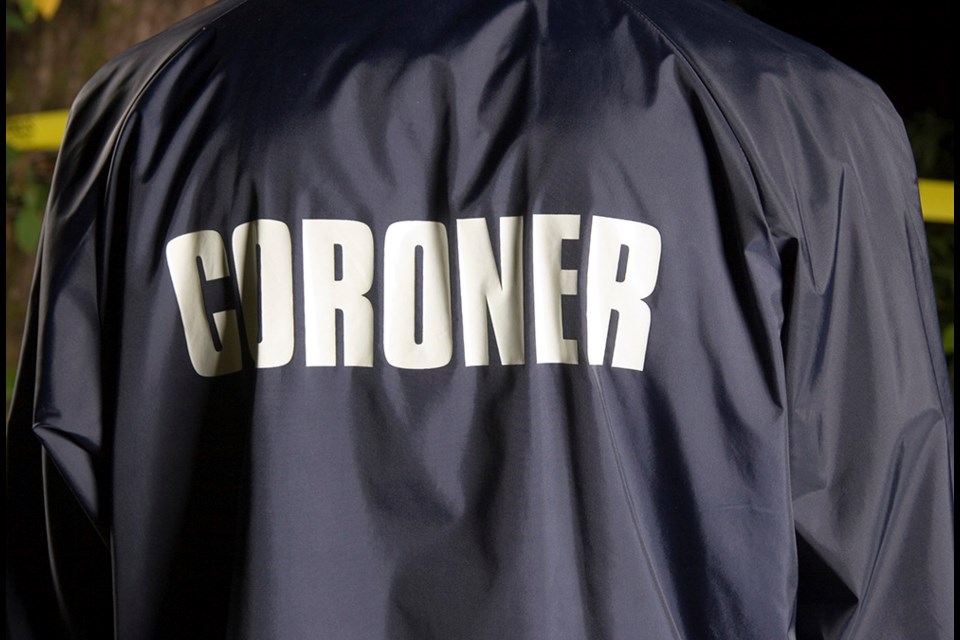REGINA – “As soon as he came back to the unit, he told the guards ‘put me back there -I’m still suicidal - I don’t want to be on this unit’,” said an inmate from the Regina Provincial Correctional Centre of Christopher Taniskishayinew’s reaction upon being transferred from the medical unit of RPCC to Unit 4AB.
The man was a longtime friend of Taniskishayinew, who died by suicide in the RPCC on Aug. 16, 2020. The inmate provided testimony on the second day of the coroner’s inquest into Taniskishayinew’s in-custody death. He described Taniskishayinew as a “really respectful guy. He liked to joke and make people laugh.”
He also gave a sense of what life is like at the facility, having spent 27 years in and out of jails. One point in particular raised by Coroner’s counsel Robin Ritter referred to the amount of programming and counselling services offered to inmates while at RPCC
“They have zero courses,” the inmate replied. “It’s pretty much lock you up and release you.”
A second inmate that provided witness testimony, and a former cellmate of Taniskishayinew - although brief, noting only being with him “a couple days” - said the medical unit was a safe place. When asked for his recommendations on how the transition could be improved, the inmate (who is currently serving at RPCC) echoed the sentiments of increased programming, counselling and a release plan for inmates once they leave the jail. He told of how those under suicide watch do not have access to programming - unlike those in regular units.
The inquest also heard from the forensic pathologist who performed the autopsy on Taniskishayinew. Dr. Andreea Nistor confirmed that the cause of death was asphyxiation. She did find some fractures on Taniskishayinew’s ribs, but added this to be “very common” in someone who has had CPR performed on them.
“Almost every adult who undergoes CPR will suffer cracks in the ribs,” Dr. Nistor said, adding that people who are revived do not experience long term effects from such fractures. Aside from marks on his neck, Dr. Nistor could not find any other significant injuries on Taniskishayinew.
On Aug. 16, 2020, Taniskishayinew was discovered by correctional officers in the Regina Provincial Correctional Centre during a 1 a.m. check. He had fashioned a rope from bedsheets, and used it to hang himself in his cell. According to testimony presented from witnesses on the first day of the inquest, Taniskishayinew had “five to six” suicide attempts previously, and expressed suicidal ideation to staff on the medical unit in RPCC approximately 40 times.
Much of the focus during the morning of March 21 was related to protocol around inmates transferring from the medical unit of RPCC back into regular units.
Some insightful testimony came from Carla Bernhart, a nurse at RPCC, who noted a change in practice for inmates transitioning. Currently, inmates on suicide watch go through a gradual re-entry to the regular units, going from continual supervision to lesser increments of checks. When Taniskishayinew was transferred, the policy of gradually entering other units was not in place, and he died hours after returning to Unit 4AB.
Another area that received much review regarded suicide screening checks and who ought to implement them. With Taniskishayinew, he was cleared by the medical unit for re-entry to Unit 4AB. Upon arrival at the regular cells, a correctional officer performed suicide screening check, which did not yield results of note.
Coroner Timothy Hawryluk posed the question that perhaps a psychiatric nurse might be the most qualified member of RPCC staff to sign off on such screenings instead of corrections officers. However, Carla Bernhart - a nurse at RPCC called to testify - noted there being “six or seven” such nurses on staff. During cross-examination, Alexa LaPlante (representing the Ministry of Corrections, Policing, and Public Safety) posed that there could be significant periods where a psychiatric nurse might not be on duty when such a clearance is required, given shift work and time off for holidays.
Proceedings will continue tomorrow when one last witness is expected to testify before the jury deliberates. The inquest is expected to conclude March 22.
— for more from Crime, Cops and Court.




